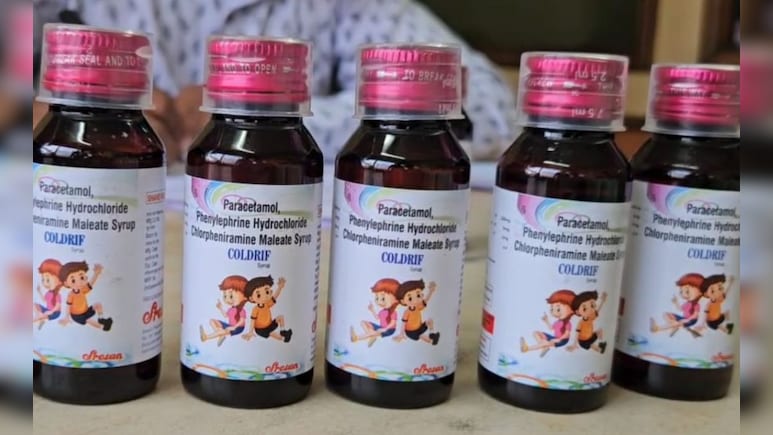
- WHO is concerned over regulatory gaps in screening medicines in India for toxic chemicals
- At least 20 children under five died from kidney failure after taking adulterated cough syrup
- Diethylene glycol found in Coldrif, Respifresh TR, and ReLife cough syrups
Amid the nationwide outrage over children's deaths caused by adulterated cough syrups in Madhya Pradesh and Rajasthan, the World Health Organization (WHO) has expressed concern over the "regulatory gap" in screening for diethylene glycol and ethylene glycol for domestically marketed medicines in India. It has also flagged the potential risk of such contaminated products being exported to other countries, particularly via unregulated channels.
This comes after at least 20 children, most of them under the age of 5, died of kidney failure after they were administered adulterated syrup to treat cough and cold symptoms. Many of the victims had been given Coldrif cough syrup, samples of which were found to contain 48.6 per cent diethylene glycol, a toxic industrial chemical.
In a statement, WHO said it is "deeply saddened" by the deaths and extended its condolences to the families. It stated that it had reached out to the Central Drugs Standard Control Organisation (CDSCO) for clarification regarding the contaminated medicines and whether the products had been exported. The CDSCO has told WHO that diethylene glycol was detected in at least three cough syrups -- Coldrif, Respifresh TR, and ReLife. CDSCO also said these products have been recalled, and the manufacturers have been ordered to stop production of all medical products. The drugs regulator has also told the WHO that none of the products were exported from India.
"WHO expresses deep concern over these developments and emphasises the following: The potential risk of contaminated products being exported to other countries, particularly via unregulated channels. The regulatory gap in DEG/EG screening for domestically marketed medicines in India. Identifying the source of the contamination and identifying and removing any contaminated pharmaceutical material which may be in circulation," it said.
The global health body said it stands ready to support national authorities in investigating and responding to these tragic events.
Track Latest News Live on NDTV.com and get news updates from India and around the world

